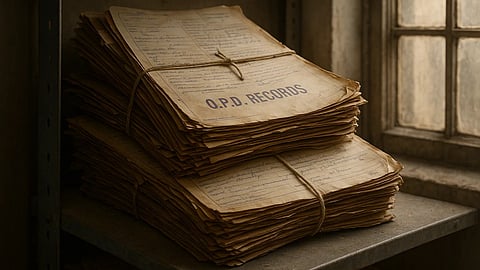According to the report by TNIE, accused, identified as a junior clerk, Bikram Sahu was responsible for the record room of the hospital’s older outpatient (OPD) building.
The hospital was shifting furniture and equipment due to building repairs when the incident occurred. The clerk reportedly took advantage of the “holiday” second Saturday when fewer staff were present.
He approached two scrap dealers, K Mohan Rao and Ramesh Nayak and sold the records, claiming he had authority via forged orders from hospital administration. The dealers purchased the records without verifying with the hospital authorities.
Following an FIR by the hospital administration, police checked CCTV footage, located and apprehended the clerk at his home in Jagatpur, and arrested the two scrap dealers. The recovered materials included sensitive hospital records.
The hospital registrar indicated that the clerk would be suspended if he remains in custody beyond 24 hours.


